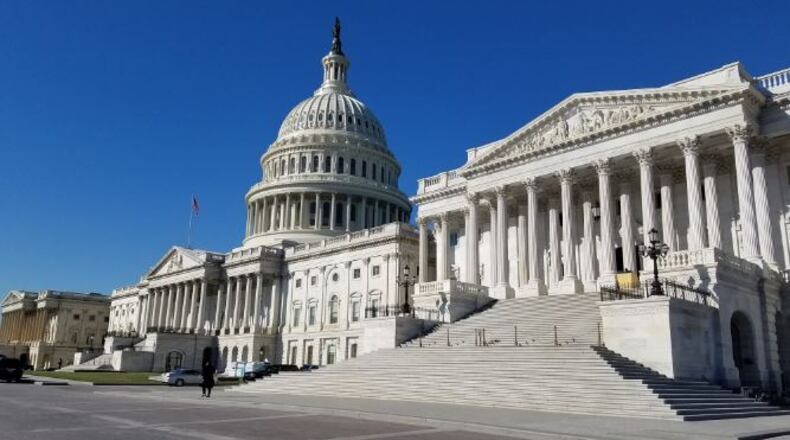As the Senate Judiciary Committee prepares to vote Monday on the Supreme Court nomination of federal appeals court judge Neil Gorsuch, Republicans say if Democratic opponents filibuster Gorsuch on the Senate floor, then the GOP will be ready by the end of the week to use the "nuclear option" to change the rules and approve Gorsuch to the bench.
"This is unprecedented in American history," said Sen. John Cornyn (R-TX) said on the CBS program, "Face the Nation," as he decried "a partisan filibuster of a Supreme Court nominee."
Most Supreme Court nominees have not faced a requirement for 60 votes, though it did happen in 2006, with the nomination of Samuel Alito by President George W. Bush.
Among the Democrats who voted for an Alito filibuster that day were none other than the future President Barack Obama, his future Vice President, Joe Biden, and the 2016 nominee for President, Hillary Clinton.
But Republicans had more than enough votes, as the Senate voted 72-25 to shut off debate and proceed to a final tally on Alito.
This time around, the numbers are different, as fewer Democrats are backing a GOP nominee to the High Court.
All 52 Republicans are expected to vote for Gorsuch in the Senate; 60 votes would be needed to invoke cloture and force final action on the floor.
One by one, most Democrats have come out against Gorsuch in recent weeks, citing a variety of reasons in his judicial decisions.
Republicans had hoped that Democrats in red states would feel the heat, and back President Trump's choice - that did not happen over the weekend in Montana, as Sen. Jon Tester (D-MT) said he will vote no on Gorsuch.
Many Democrats who might have voted for Gorsuch - or opposed a filibuster - are still aggravated by what happened last year, when Republicans refused to hold a hearing on Merrick Garland, the Supreme Court choice of President Barack Obama, to replace the late Justice Antonin Scalia.
The Garland episode - along with the unsettled political landscape involving President Trump - have combined to push many Democrats to heatedly oppose the Gorsuch nomination.
So far, only three Democrats have said they will support Gorsuch:
+ Sen. Joe Manchin D-WV
+ Sen. Heidi Heitkamp D-ND
+ Sen. Joe Donnelly D-IN
That means backers of Gorsuch still need five other Democrats to decide against joining the filibuster, and get to 60 votes.
These are the only undecided Senators left on a filibuster:
+ Sen. Michael Bennet D-CO
+ Sen. Sherrod Brown D-OH
+ Sen. Ben Cardin D-MD
+ Sen. Chris Coons D-DE
+ Sen. Dianne Feinstein D-CA
+ Sen. Angus King I-ME
+ Sen. Patrick Leahy D-VT
+ Sen. Bob Menendez D-NJ
+ Sen. Mark Warner D-VA
On Sunday, Sen. Cardin of Maryland had a town hall meeting and was asked about the Gorsuch nomination - he didn't rule out maybe voting against Gorsuch, but voting for cloture on his nomination, to avoid the nuclear option.
Credit: Jamie Dupree
Credit: Jamie Dupree
It was over three years ago that Democrats used the nuclear option to reduce the 60 vote super majority needed for final action on regular cabinet appointments, and federal district and appeals court judges.
It was 100 years ago last month, in March of 1917, that the Senate first put constraints on the filibuster, which had bedeviled Senators for years.
Originally, the only way to end debate was to muster the support of two-thirds of Senators; that was reduced after Watergate to three-fifths in 1975.
We may be on the verge of taking that down to a simple majority now for all judges, the Supreme Court, and the Cabinet.
We'll see what happens this week.
About the Author
The Latest
Featured




